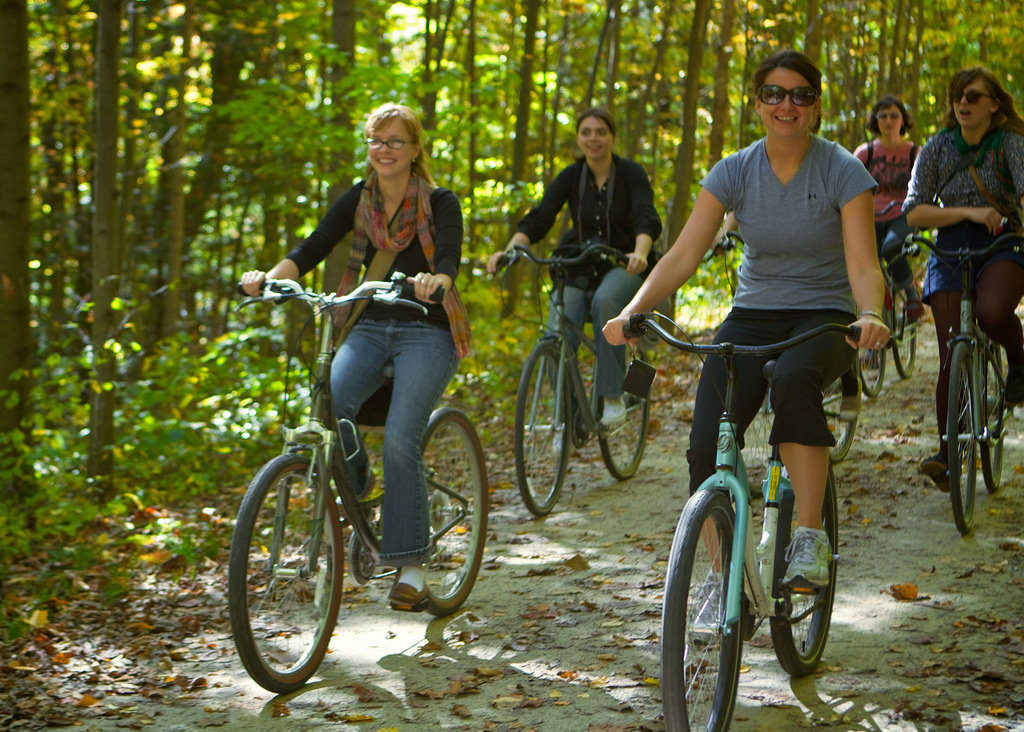
Why Spending Time with Friends Will Lower Your Stress

by Bob Avenson
Photo Credit: David Duran, via Flickr Creative Common
Thousands of studies have found that the majority of us thrive when we have have strong, positive relationships with other people. Your happiness actually decreases when you reduce the number of hours in which you socialize. A 2016 U.S. Bureau of Labor Statistics survey found that on average Americans spend only 39 minutes socializing with one another during the week and only 59 minutes on the weekends. It’s no wonder why so many people complain of loneliness.
An active social life comes with crucial benefits in addition to more happiness
6-7 Hours a Day
A 2008 poll by Gallup Healthways found that people are the happiest on days when they spend 6-7 hours of social time with family and friends. These hours also include the short social interactions you have as you move through your day.
A Key Predictor of Longevity
An active social life comes with crucial benefits in addition to more happiness. It actually extends your life. Most people are aware that diet, exercise, and overall health are good predictors of how long you will live. A 2010 meta-analysis by researchers at the University of Cambridge confirmed two even more important predictors of longevity:
- Close relationships – these are your best friends whom you can confide in and count on to provide support when you need it.
- Social integration – these are the daily face-to-face interactions you have that include both strong and weak relationships. They include those short interactions you have in passing with neighbors, your grocer and other people you come in contact with through out your day. These relationships are one of the strongest predictors of how long you will live. (See Ornish Living article, The Social Value of Small Talk.)
Social Media Doesn’t Count
A 2017 study published in the American Journal of Epidemiology found that people who use Facebook showed signs of lower well-being. Social Media can detract from face-to-face relationships and more meaningful in-person activities. It can also increase sedentary behavior and hurt your self- esteem because it causes you to compare yourself to others in negative ways.
More Brain Power
Another new study finds that seniors who are the most frequently social saw a 70% reduction in the rate of their cognitive decline compared with their least social peers.
If you need more reasons to help justify spending extra time chatting or playing a board game, consider the plethora of evidence linking less social interaction with poor health.
This includes:
- The development and progression of cardiovascular disease
- Recurrent myocardial infarction
- Atherosclerosis
- Autonomic dysregulation
- High blood pressure
- Cancer and delayed cancer recovery
- Inflammatory biomarkers
- Impaired immune function
- Slower wound healing
How to Stay Young at Heart
Socializing will keep you young at heart, emotionally vibrant and mentally sharp. So, why not keep the “holiday spirit” going year-round? It can be as simple as a wave and a smile to a passerby. You could also make a bigger effort to do things with other people that have the potential for developing deeper connections, such as:
- Visiting family and friends (more frequently).
- Participating in activities such as volunteering.
- Going to sporting events or playing on a team. You don’t have to be athletic to join a bocce ball team or a bowling league. It’s not just for the competition. Quite often scoring uses the handicap system to accommodate different skill levels. The benefit comes from the joy of being around others.
- Attending religious ceremonies. You don’t have to have the profile of a saint. Find a group you enjoy spending time with.
- Becoming an active member of a civic club.
Interacting with a group of people will provide you with a proven life-extending benefit. And who knows? You may even find one or two people you especially enjoy, which will bring the added benefit that comes from having close relationships.
Regardless of how you go about connecting with others, remember that it should be in a way that is enjoyable to you. That way you’ll be inspired to do it often.
Can you imagine one new action you can to take improve your social life this holiday season?
Contributed by

Bob Avenson
Senior Faculty - Group Support
Friendship is when people know all about you but like you anyway.
Better Health Begins With You...
Have something to contribute?
Up Next for You


7 Scientifically-Proven Tips to Decrease Holiday Anxiety





